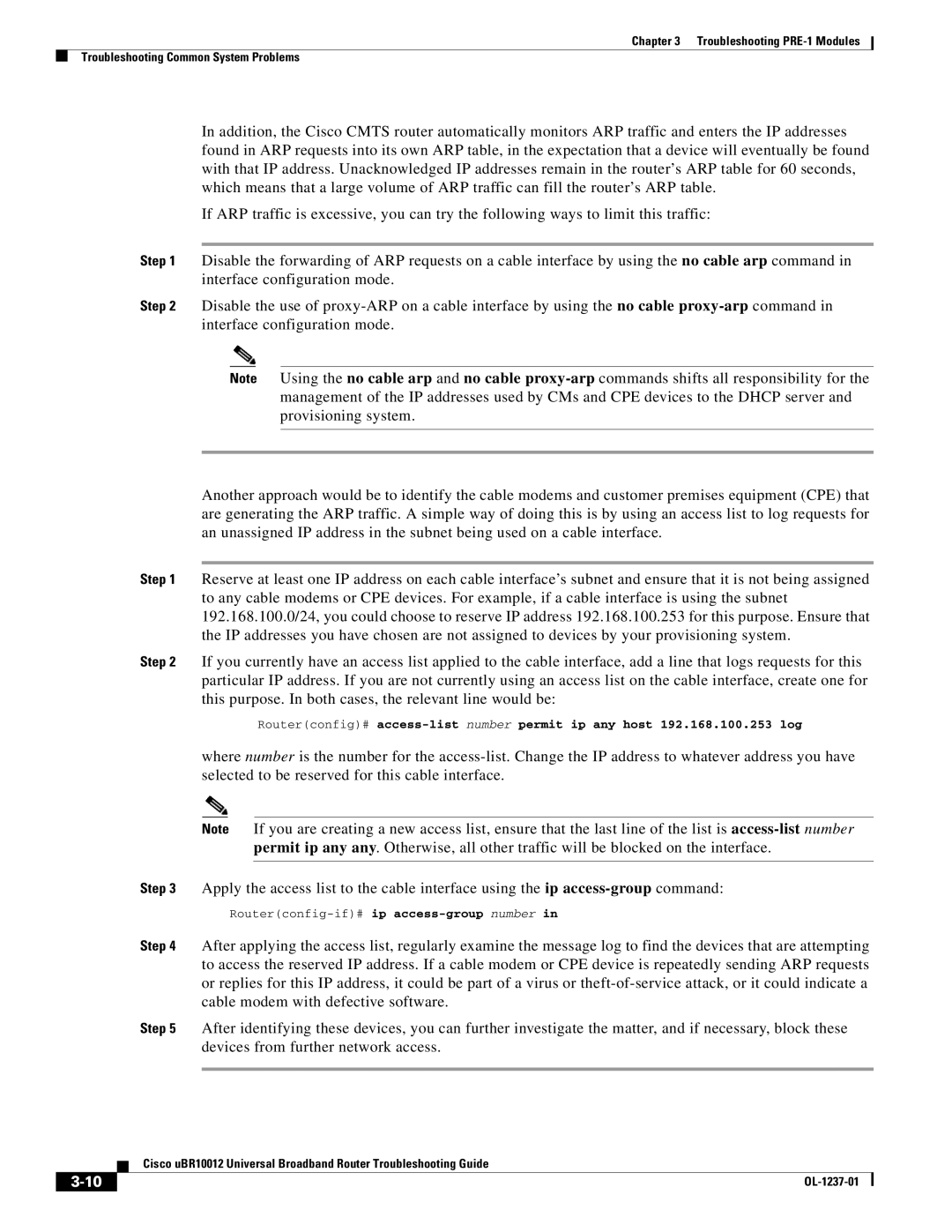
Chapter 3 Troubleshooting
Troubleshooting Common System Problems
In addition, the Cisco CMTS router automatically monitors ARP traffic and enters the IP addresses found in ARP requests into its own ARP table, in the expectation that a device will eventually be found with that IP address. Unacknowledged IP addresses remain in the router’s ARP table for 60 seconds, which means that a large volume of ARP traffic can fill the router’s ARP table.
If ARP traffic is excessive, you can try the following ways to limit this traffic:
Step 1 Disable the forwarding of ARP requests on a cable interface by using the no cable arp command in interface configuration mode.
Step 2 Disable the use of
Note Using the no cable arp and no cable
Another approach would be to identify the cable modems and customer premises equipment (CPE) that are generating the ARP traffic. A simple way of doing this is by using an access list to log requests for an unassigned IP address in the subnet being used on a cable interface.
Step 1 Reserve at least one IP address on each cable interface’s subnet and ensure that it is not being assigned to any cable modems or CPE devices. For example, if a cable interface is using the subnet 192.168.100.0/24, you could choose to reserve IP address 192.168.100.253 for this purpose. Ensure that the IP addresses you have chosen are not assigned to devices by your provisioning system.
Step 2 If you currently have an access list applied to the cable interface, add a line that logs requests for this particular IP address. If you are not currently using an access list on the cable interface, create one for this purpose. In both cases, the relevant line would be:
Router(config)#
where number is the number for the
Note If you are creating a new access list, ensure that the last line of the list is
Step 3 Apply the access list to the cable interface using the ip
Router(config-if)# ip access-group number in
Step 4 After applying the access list, regularly examine the message log to find the devices that are attempting to access the reserved IP address. If a cable modem or CPE device is repeatedly sending ARP requests or replies for this IP address, it could be part of a virus or
Step 5 After identifying these devices, you can further investigate the matter, and if necessary, block these devices from further network access.
Cisco uBR10012 Universal Broadband Router Troubleshooting Guide
|
| |
|
